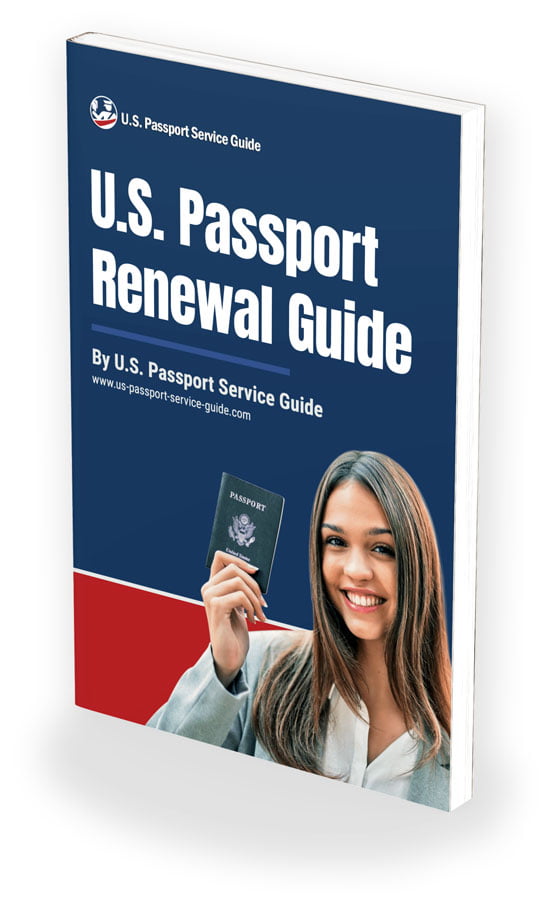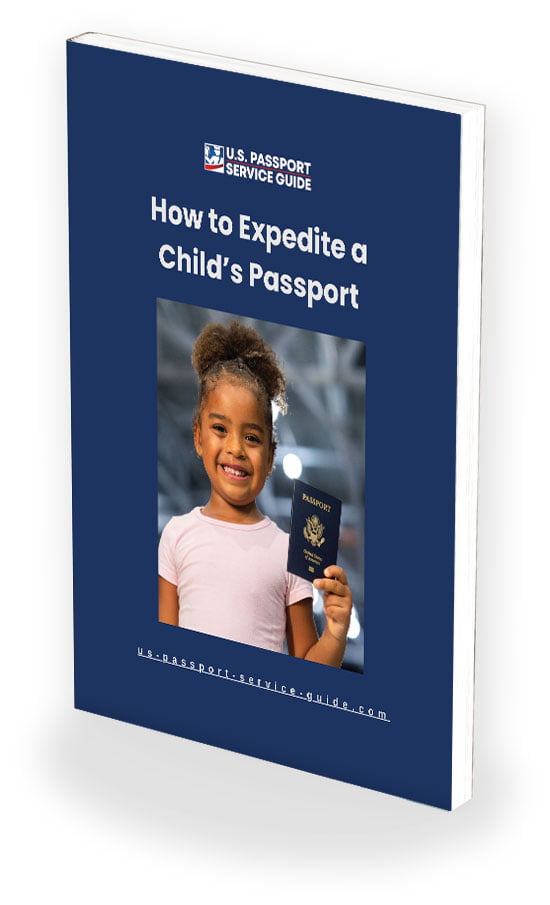Navigating passport renewal can be tricky, especially if you’re prone to procrastination (like me). It’s a common question: “What is the last possible day I can renew my passport?” This isn’t just idle curiosity; your passport is your gateway to the world, and keeping it up-to-date is crucial. With our busy lives, it’s easy to overlook its expiration date, yet the consequences of delaying can be more than just inconvenient – it can also become more costly.
Drawing on over 20 years of experience in assisting Americans with their travel document needs, we’ve learned that the best rule of thumb is to renew your passport 9 months to a year before its expiration date.
However, every traveler’s situation is unique. There are a lot of different reasons why the simple answer may not be your answer. In this article, we delve into the complexities of passport validity and renewal, offering clear guidance on when and why to renew your passport, tailored to your specific travel plans and the requirements of your destination countries.
For instance, did you know about the 3-month and 6-month validity rules many countries enforce? These regulations might mean your passport won’t be accepted for international travel, even if it hasn’t officially expired yet.
Whether you’re a frequent-flier or planning a once-in-a-lifetime trip, staying informed about these types of details is vital for smooth travel abroad. Let’s make sure that your passport is as prepared for your next journey as you are.
The Basics of Passport Validity
When it comes to international travel, your valid passport is your most valuable asset. For U.S. citizens, the standard validity of a passport is 10 years for adults and 5 years for passports issued to those under 16.
However, the true validity of your passport involves more than just its printed expiration date. While your passport may technically be valid until its expiry date, its usefulness as a travel document can be very different depending on where you are going.
The discrepancies exist because countries are free to set their own entry requirements. As such, some nations may deny entry to travelers whose passports are nearing expiration. The primary reason for these policies is to ensure foreign visitors do not overstay their legal rights to do so and potentially burden the resources of the host countries.
Therefore, when trying to figure out exactly when to renew your passport, you need to know more than just the exact date your passport expires; you need to know the entry requirements of your destination country, too.
The 6-Month Rule Explained
The most common passport validity exception that every traveler should be aware of is the 6-month rule. This rule, adopted by numerous countries, requires that your passport be valid for at least six months beyond your date of entry. This means that if your passport has less than six months remaining until its expiration, it will not be considered valid for entry into these countries.
The 6-month rule is particularly important for those whose passports are nearing their expiration date. It effectively shortens the usability period of your passport. For example, if your passport is set to expire in seven months, you only have a one-month window to travel to countries enforcing this rule.
Ignoring this requirement can lead to travel disruptions, such as being denied boarding on an international flight or being denied entry upon arrival at your destination.
The Lesser-Known 3-Month Rule
While the 6-month rule is widely recognized, a lesser-known but equally important variation is the 3-month rule. Under this rule, your passport must be valid for at least three months beyond your intended date of departure from the country you are visiting.
This rule holds significant implications for travelers planning last-minute or urgent trips. If you find yourself needing to travel internationally on short notice, it’s crucial to check if your destination country enforces the 3-month rule. Failing to meet this requirement can result in similar consequences to the 6-month rule – denied boarding or entry. This is particularly pertinent for business travelers and those dealing with emergencies or unplanned travel.
Knowing the critical 6-month and 3-month passport validity rules is key to determining the best time to renew your passport for international travel. By making sure your passport complies with these requirements well in advance, you’ll effectively prevent any last-minute travel issues and ensure your travel plans go smoothly
Renewal Time Frames: Standard vs. Expedited Options
Understanding the processing times for passport renewals is one of the keys to timing your application. The standard processing time for a U.S. passport renewal is currently between 7 to 10 weeks. This duration can vary based on factors like application volume and time of year. It’s important to consider these standard timeframes when planning your renewal, especially if you have upcoming travel plans.
For those who need their passport sooner, expedited renewal options are available. Expedited processing can shorten this timeline to 3 to 5 weeks. Be advised, this service requires an additional fee on top of the standard renewal cost. Currently, the expediting fee is $60. Check our guide to current passport fees for the most current fee schedule.
Additionally, for urgent travel needs, there are even faster options. If you can provide proof of travel within the next 2 to 3 weeks, you may qualify for more urgent processing. Be aware, these expedited services are subject to additional costs and may vary based on demand and processing capabilities at the time of your application. More on these renewal options later.
For more, including the most up-to-date passport processing times, check out How Long Does It Take to Get a Passport?
Special Circumstances: Emergency Renewals
In cases of emergency, when urgent international travel is required within 72 hours, the U.S. Department of State offers an emergency passport renewal service. This expedited process is designed to assist travelers who need to depart the United States imminently due to life-or-death emergencies or other urgent travel situations.
To access emergency renewal services, you will need to schedule an appointment at a passport agency. However, it’s important to note that the availability of these appointments can make them hard to come by. These special appointments are typically reserved for true emergencies.
To secure an appointment, you should be prepared to provide:
- Proof of Emergency: Documentation that confirms the nature of your emergency, such as a medical or death certificate.
- Proof of Travel: Evidence of your imminent travel plans, like a flight itinerary or travel tickets.
Upon successfully scheduling an appointment, you will need to bring your current passport, a completed application form, a new passport photo, and the applicable fees. Be mindful that emergency services might incur additional costs.
In urgent scenarios requiring travel within 72 hours, you can also consider using a registered passport expediting service. These professionals specialize in facilitating emergency passport renewals quickly and efficiently. They can often assist in securing the necessary appointments and ensuring your documentation is complete and accurate.
These services come with additional fees, and it’s important to choose a reputable, registered service provider to avoid any complications.
Determining Your Passport’s Last Possible Renewal Day
As you can see, deciding the best time to renew your passport can often feel like a balancing act. The “last possible day” for renewal doesn’t have a one-size-fits-all answer, but rather, it depends on your specific travel plans and the rules set by your destination(s). It also involves keeping track of the current passport processing times set by the U.S. Department of State. You must plan your renewal with these considerations in mind.
As a general guideline, try to start your passport renewal at least 9 to 12 months before yours is set to expire. This timeframe is especially important if you are planning international travel, as it comfortably accommodates the 6-month rule. Renewing your passport within this window not only ensures that you will meet the entry requirements for most countries, but it also provides a cushion in case of unexpected delays.
Remember, when it comes to passports, it’s about giving yourself peace of mind, knowing your passport is ready whenever you need it.
How to Renew: A Step-by-Step Guide
Renewing your passport is a straightforward process that can be completed with careful attention to detail. Here’s a quick, step-by-step guide to help you navigate the renewal process. For more details about the process, be sure to visit our comprehensive guide to passport renewals.
- Form DS-82: Complete the Passport Renewal Application Form (DS-82). This form can be filled out online and printed, or obtained at a U.S. Post Office.
- Passport Photo: Obtain a recent passport photo that meets the State Department’s guidelines. Photos must be 2×2 inches, in color, taken within the last six months, with a neutral facial expression, and on a plain white or off-white background.
Not sure how to look your best for your passport photo? Be sure to check out our guide, What to Wear for a Passport Photo: How to Balance Style and Compliance.
- Gather Required Documents: Compile your current passport, the completed DS-82 form, your new passport photo, and any applicable supporting documents (like a legal name change document, if applicable).
- Calculate Fees: Determine the correct renewal fee and prepare a check or money order payable to the U.S. Department of State.
- Mail Your Application: Send your application package to the address listed on the DS-82 form. Use trackable mail for added security.
- Application Review: Check the status of your application online to ensure it’s being processed.
For those seeking a more streamlined renewal experience, a registered passport expediting service can be a valuable resource. These services can guide you through each step of the renewal process, from completing the DS-82 form to ensuring your passport photo meets the required standards.
While there is an additional cost for these services, they can provide peace of mind and convenience, especially for those with busy schedules or needing help with the application process.
Renewal Costs: What to Expect
The timing of your passport renewal will also affect how expensive it is. Understanding the costs associated with your renewal is another crucial piece of effective planning.
The standard fee for renewing an adult U.S. passport book is currently $130. However, if you require additional services, such as a passport card or expedited processing, there are additional charges:
- Expedited Service Fee: An additional $60 on top of the standard fee for faster processing.
- Passport Card: Renewing a passport card is $30. So, the combined fee for both the book and card is $160.
- Overnight Delivery: For expedited return of your passport, there’s an extra charge of $19.53 for 24-48 hour delivery.
Using a registered passport expediting service also incurs additional costs. These fees vary depending on the service provider and the urgency of your request. It’s important to factor in these costs when planning your passport renewal, especially if you are under a tight schedule or require specialized assistance.
It is important to note, that even with these additional fees, passport expediting services can often save you money, particularly if you need a passport fast and would have to travel to a regional passport agency appointment on your own.
Planning Ahead: Avoiding Common Pitfalls
One of the key strategies for a stress-free passport renewal process is planning ahead. Here are some tips to help you avoid common pitfalls:
- Renew Early: Don’t wait until the last minute. Consider renewing your passport well before the 6-month validity period required by many countries.
- Mind Peak Seasons: Be aware that processing times can be longer during peak travel seasons, such as summer and holidays. Apply outside these times if possible.
- Set Reminders: Use digital calendars or reminder apps to alert you 9 to 12 months before your passport’s expiration date.
- Double-Check Your Application: Ensure that all information on your renewal application is accurate and that your photo meets the specified guidelines.
- Keep Track of Processing Status: Regularly check the status of your application online to stay informed of its progress.
By following these steps and tips, you can simplify your passport renewal while also ensuring your passport is valid and ready for your next international adventure.
Using a registered passport expediting service can help in these areas. These services are experienced in handling the nuances of passport renewals and can provide personalized reminders and tips to ensure your passport is renewed well ahead of any travel.
This can be particularly beneficial during peak travel seasons when processing times may be extended. If you choose to use an expediting service, make sure to select a reputable provider with a track record of reliability and customer satisfaction.
Don’t Forget to Update Your Travel Programs After Renewal
After renewing your passport, it’s essential to update your information in any trusted traveler programs you’re enrolled in, such as Global Entry, TSA PreCheck, or NEXUS. These programs streamline your travel experience, but they require current passport details to function correctly.
To update your information, log into your account on the respective program’s website and navigate to the section for updating documents. Enter your new passport number and any other changed details. This step is vital to ensure uninterrupted access to the benefits of these programs during your travels.
Conclusion
Timing and planning are key elements in the passport renewal process. By understanding and adhering to international travel requirements, including the 6-month and 3-month validity rules, you can avoid potential travel disruptions. Again, the last possible day to renew your passport largely depends on your travel plans and the specific entry requirements of the countries you plan to visit.
Renewing your passport well in advance, considering processing times and potential peak season delays, and being prepared for the associated costs are all crucial steps in making sure you’re ready for international travel.
We encourage you to assess your passport’s expiration date and plan your renewal accordingly. Staying proactive in renewing your passport not only ensures hassle-free travel but also keeps you prepared for any spontaneous trips or unexpected travel needs.
For more information on passport renewal, including forms and detailed guidelines, visit the official U.S. Department of State’s passport website.
Additionally, consider the convenience and expertise offered by registered passport expediting services, especially if you are navigating tight deadlines or complex travel plans.








